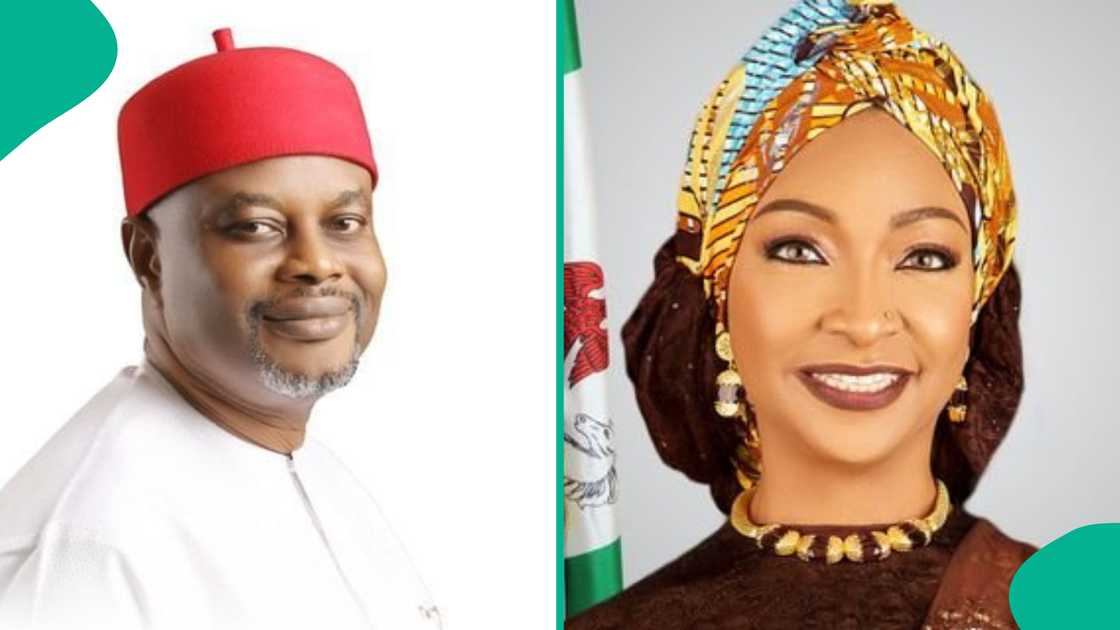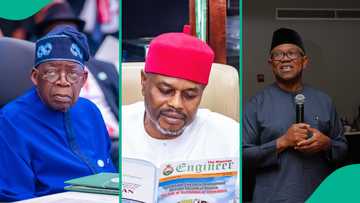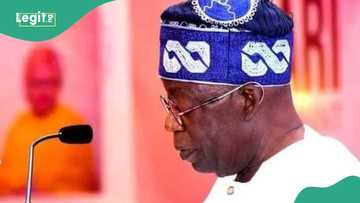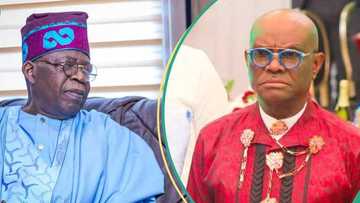Nnaji, Adeosun, 4 Other Ministers Who Faced Scrutiny Over University Degrees and NYSC Credentials
- Several Nigerian ministers have faced intense scrutiny over questionable academic and NYSC credentials, raising concerns about integrity in public office
- From forged certificates to incomplete service, these controversies have sparked legal battles and public outrage
- This report examines the most prominent cases, shedding light on the recurring pattern of credential scandals within the Federal Executive Council
Questions surrounding academic qualifications and NYSC credentials have repeatedly surfaced, casting shadows over the integrity of public office holders.
From forged documents to incomplete service, several ministers have faced scrutiny over their eligibility.

Source: Twitter
Here’s a detailed look at some of the most prominent certificate controversies involving members of the Federal Executive Council.
1. Uche Nnaji certificate scandal: UNN and NYSC disown credentials
Uche Nnaji, the Minister of Innovation, Science and Technology, found himself at the centre of a storm following revelations about his academic and NYSC records.
PREMIUM TIMES reported that the University of Nigeria, Nsukka (UNN), disowned the Bachelor of Science degree certificate in Nnaji’s possession, stating that he did not complete his studies and was never issued a certificate.

Source: Twitter
2. Kemi Adeosun NYSC exemption certificate controversy
Kemi Adeosun, Nigeria’s former Minister of Finance, was embroiled in a major controversy over an alleged forged NYSC exemption certificate.
Appointed in 2015, she was accused of presenting a document bearing the signature of a former NYSC Director-General who had already left office, raising doubts about its authenticity.
Although she resigned in 2018 amid public pressure, a 2021 court ruling later clarified that she was not legally required to present an NYSC certificate due to her British citizenship at the time of graduation.
3. Adebayo Shittu NYSC non-participation allegation
Adebayo Shittu, former Minister of Communications, was accused of failing to participate in the mandatory National Youth Service Corps (NYSC) scheme after graduating from the University of Ife in 1978.
He argued that his election to the Oyo State House of Assembly shortly after law school constituted a form of “higher service,” but the NYSC maintained that political office could not substitute for the one-year programme. Since Shittu graduated at age 25, he was legally required to serve, making his non-participation a point of contention.
4. Hannatu Musawa NYSC status during ministerial appointment
Hannatu Musawa, Minister of Art, Culture, and Creative Economy, was alleged to have been a serving NYSC member when appointed in 2023. Critics claimed this violated the NYSC Act, which prohibits corps members from holding ministerial office.
The Nigerian Bar Association filed a lawsuit seeking her removal, but in April 2024, Justice James Omotosho dismissed the case.
5. Olubunmi Tunji-Ojo NYSC certificate forgery allegation
Olubunmi Tunji-Ojo, Minister of Interior, faced allegations of presenting a forged NYSC certificate during his 2023 screening. Reports highlighted discrepancies in the dates and details of his discharge certificate, suggesting he might have served while holding public office.
The NYSC later clarified that Tunji-Ojo’s certificate was genuine.
6. Stella Oduah NYSC abscondment and forgery charges
Stella Oduah, former Minister of Aviation and senator, was accused of absconding from the NYSC programme during the 1982/83 service year, failing to complete the mandatory one-year service.
Despite this, she allegedly claimed in official documents that she had completed NYSC, supporting her claim with an affidavit and police extract.

Read also
Certificate forgery: Court rejects minister’s bid to block UNN from releasing his academic records
In 2023, the EFCC filed forgery and perjury charges against her, asserting that she falsified her NYSC credentials and made misleading declarations while in public office.
Do ministers need degree certificate to serve?
In Nigeria, the requirement for a degree certificate to serve as a minister is not explicitly mandated by the Constitution. Section 147 of the 1999 Constitution (as amended) outlines the criteria for ministerial appointments, stating that a person must be qualified for election as a member of the House of Representatives.
This qualification includes being a Nigerian citizen, at least 30 years old, and educated to at least the secondary school level.
However, in practice, most ministerial nominees possess university degrees, as appointments are often based on professional experience, political standing, and perceived competence. The National Youth Service Corps (NYSC) certificate, which is mandatory for Nigerian graduates under 30, has become a focal point in recent controversies.
While not a constitutional requirement for ministerial office, failure to present a valid NYSC certificate, or presenting a forged one, can raise legal and ethical concerns, as seen in the cases of Kemi Adeosun, Adebayo Shittu, and others.
Ultimately, while a university degree is not legally required to become a minister, it remains a strong informal expectation. The integrity of academic and NYSC credentials continues to influence public perception and political accountability, especially in light of recent scandals involving falsified or incomplete documentation.
Role of ministers
Ministers in Nigeria play a crucial role in shaping and implementing government policy across various sectors.
Appointed by the President and confirmed by the Senate, each minister heads a specific ministry, such as Health, Education, Defence, or Finance, and is responsible for overseeing its operations, programmes, and strategic direction.
Their duties include advising the President on sectoral matters, proposing legislation, managing budgets, and ensuring that government initiatives align with national development goals.
Ministers also represent Nigeria in international engagements related to their portfolios and liaise with state governments, agencies, and stakeholders to coordinate policy execution. They are expected to uphold transparency, accountability, and efficiency in public service delivery.
In cabinet meetings, ministers contribute to collective decision-making on national issues, helping to shape the administration’s overall agenda.
Court rejects minister’s request
Legit.ng earlier reported that a Federal High Court in Abuja has ruled against Uche Nnaji. The Minister of Innovation, Science and Technology had asked the court to stop the University of Nigeria, Nsukka (UNN) from releasing his academic records. He filed an ex parte motion marked FHC/ABJ/CS/1909/2025.
The motion also sought to compel UNN to release his academic transcript.
Proofreading by James Ojo, copy editor at Legit.ng.
Source: Legit.ng






